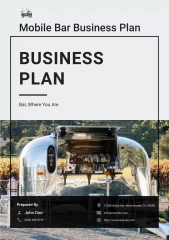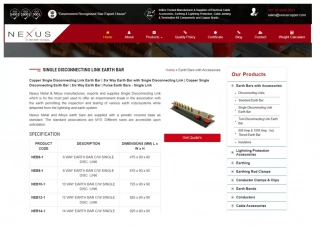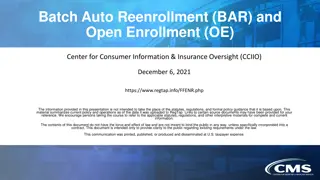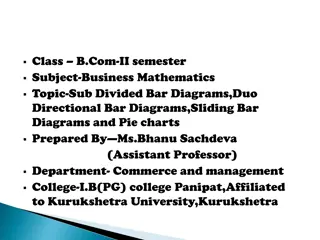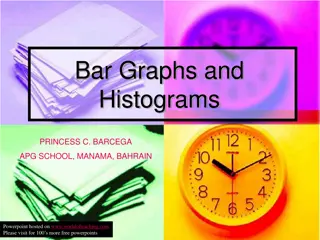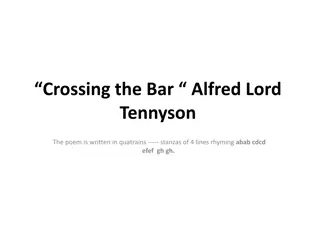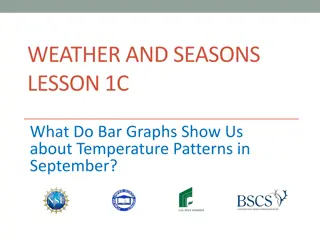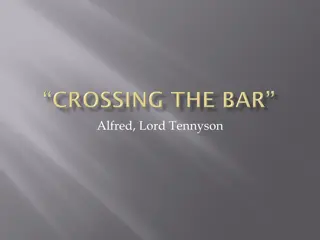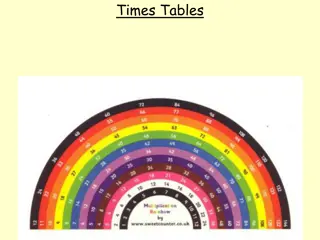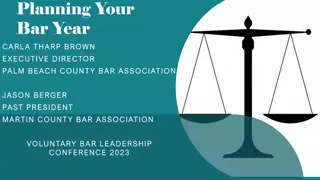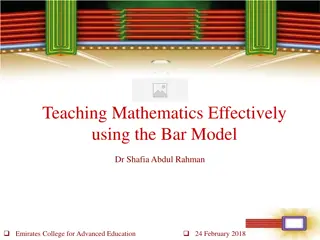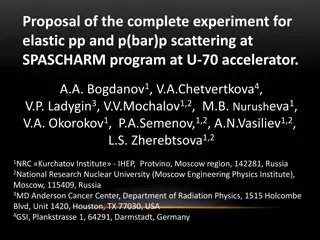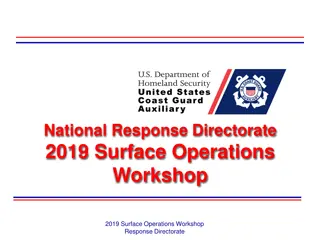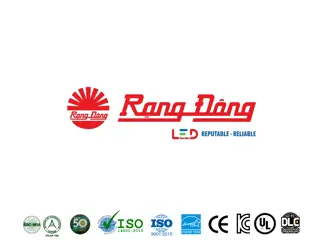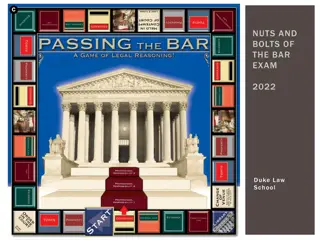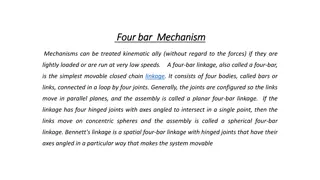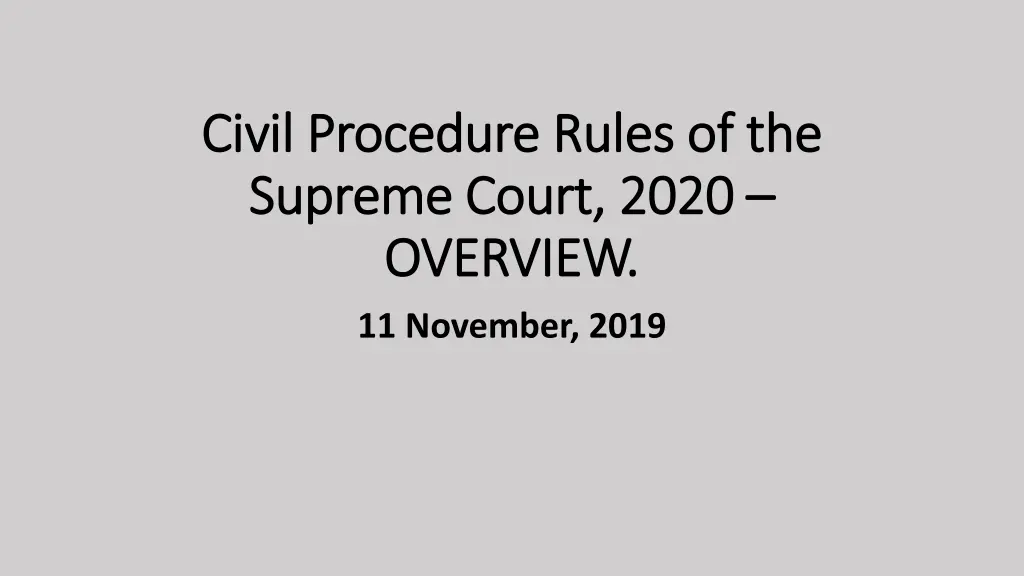
Supreme Court Civil Procedure Rules 2020 Overview and Updates
Explore the proposed new Supreme Court Civil Procedure Rules for 2020, covering aspects like starting proceedings, pleadings, judgments, case management, disclosure, settlement offers, and more. Get insights into the background, exceptions, and upcoming changes in civil procedure regulations.
Download Presentation

Please find below an Image/Link to download the presentation.
The content on the website is provided AS IS for your information and personal use only. It may not be sold, licensed, or shared on other websites without obtaining consent from the author. If you encounter any issues during the download, it is possible that the publisher has removed the file from their server.
You are allowed to download the files provided on this website for personal or commercial use, subject to the condition that they are used lawfully. All files are the property of their respective owners.
The content on the website is provided AS IS for your information and personal use only. It may not be sold, licensed, or shared on other websites without obtaining consent from the author.
E N D
Presentation Transcript
Civil Procedure Rules of the Civil Procedure Rules of the Supreme Court, Supreme Court, 2020 OVERVIEW. OVERVIEW. 11 November, 2019 2020
PRESENTATIONS PRESENTATIONS Today we will be briefing you on the following draft Parts of the proposed new S/C Rules this morning: Service Starting proceedings; Pleadings and Judgments; Interlocutory applications / Case Management; Disclosure / Settlement offers / Payments into Court; and Costs.
DISCLAIMER DISCLAIMER All information given to you in this workshop this morning is based on current drafts of the relevant Parts of the proposed new S/C Rules. It is subject to change prior to the finalization of the Rules by the Rules Committee. A working draft of the proposed new S/C Rules will be circulated to members of the Bar by the end of the first week in December. There will be a period of consultation with the Bar and thereafter a period of training for all judicial officers, court staff and members of the Bar. The target date for the implementation of the new Supreme Court Civil Procedure Rules is April, 2020.
SOURCES SOURCES Considered CPR of: Barbados; ECSC; New Zealand; Cayman; and England. Supplemented by Practice Directions / Practice Guides.
BACKGROUND BACKGROUND Current Rules promulgated in 1978 41 years ago with limited changes during that period. Time for major reform. CPR introduced in other jurisdictions: England 1998 / 1999; Trinidad & Tobago 2006; Jamaica 2003; Barbados 2009; Belize 2005; Eastern Caribbean States (OECS) 2000; Cayman The Grand Court Rules 1995, New Zealand; Australia. New CPR 2020- real and systemic substantive change not merely form or cosmetic. New litigation culture.
EXCEPTIONS EXCEPTIONS The new Rules will NOT apply to the following proceedings: (a) bankruptcy and insolvency proceedings (including winding up of companies); (b) family proceedings except proceedings under the Child Protection Act; (c) non-contentious probate proceedings; and (d) any other proceedings in the Court instituted under any enactment, in so far as rules made under that enactment regulate those proceedings.
SUMMARY SUMMARY Significant reforms include: The enactment of the Overriding Objective; Case Management; The court s control of the preparation and presentation of evidence and, in particular the role and duty of an expert witness; The costs regime; There are, additionally, significant reforms in relation to: The creation of a mechanism for the claimant to make an offer to settle with costs consequences similar to the current practice in relation to offers made by a defendant. A modified and narrower criterion for the documents to be disclosed in the process formerly known as discovery but now known as disclosure .
TERMINOLOGY TERMINOLOGY Claim form: the court document by which a claim is commenced; formerly a writ. The Claim Form may contain all the particulars of the case or it may be served separately in a Statement of Claim. The Statement of Claim may be served after the Claim Form but only with the Court s permission (e.g. where there are limitation problems). Statements of Case: this is the term describing what were formally called Pleadings; it also embraces an application (formerly a Summons:) and Further Information. Further Information: this term embraces both what were formerly known as (1) Further and Better Particulars and (2) Interrogatories: A party may request further information in relation to any relevant matter in issue between the parties. This may include matters of law as well as of fact. The Court will, if necessary, order the information to be furnished if it is necessary fairly to dispose of the claim or to save costs. The matters to be taken into account by the court when exercising its discretion are set out in the Rules. Statement of Truth: EVERY Statement of Case must be verified by a Statement of Truth. This is simply a statement that the facts stated are true. The wording is prescribed in the rule. It must be given by the party himself unless it is impracticable so to do. There are different forms of statement depending upon whether the statement is made by an individual, a company or an attorney. The Court may strike out a Statement of Case which is not verified by a Statement of truth.
TERMINOLOGY TERMINOLOGY Acknowledgment of Service: the document replacing an Appearance. The general rule is that the period for filing an acknowledgment of service is the period of 14 days after the date of service of the claim form. Even if the time for filing has expired a Defendant may, nevertheless, file an acknowledgment of service at any time before a default judgment is filed. If the Defendant files a Defence within the required time for filing an acknowledgment of service then he does not also need to file an Acknowledgment of Service. Summary Judgment: This reflects the former RSC Order 14. The test as to whether summary judgment should be given is whether there is no reasonable prospect of success . Moreover, not only may a Claimant apply for summary judgment against a Defendant but a Defendant may apply for summary judgment against the Claimant.
TERMINOLOGY TERMINOLOGY Disclosure: this was formerly known as Discovery. Different scope and procedure under the new Rules. Offers to Settle: A party (cliamant or defendant) may make an offer to settle at any time before the beginning of the trial; in order to obtain the benefit of the provisions it must be in writing, state that it is open for acceptance by a specified date and it must be open for acceptance for 21 days. Where the offer is accepted, the claim is stayed; if the offer is accepted but its terms are not complied with then either party may apply to the court for an order that the stay be lifted or the terms be enforced or for such other relied as is appropriate.
Offers to Settle Offers to Settle Where the Claimant makes an offer to settle which is not accepted and, in the case of an offer to settle a claim for damages, the court awards an amount which is equal to or more than the amount of the Claimant s offer or, in any other case, the court considers that the Defendant acted unreasonably in not accepting the Claimant s offer, then the Court may, in exercising its discretion as to interest, take into account the failure of the Defendant to accept the Claimant s offer. Applied mutatis mutandis to offer by Defendant.
FIXED DATE CLAIMS FIXED DATE CLAIMS A fixed date claim form must be used: (a) in proceedings for possession of land; (b) in claims arising out of hire-purchase or credit sale agreements; (c) whenever its use is required by a rule or practice direction; and (d) where by any enactment proceedings are required to be commenced by originating summons or motion. Defence A defendant who wishes to defend all or part of a claim must file a defence - BUT where (i) the claimant issues a fixed date claim form in Form 2 and serves with it an affidavit instead of a statement of claim; or (ii) any rule requires the service of an affidavit, the defendant may file an affidavit in answer instead of a defence Default judgment A plaintiff can not obtain default judgment where the claim is a fixed date claim. Case management Fixed date claims first hearing: Case Management Conference: when a fixed date claim is issued the court must fix a date for the first hearing of the claim and, on the first hearing, in addition to any other powers that the court may have, the court shall has all the powers of a case management conference.
FIXED DATE CLAIMS FIXED DATE CLAIMS Additional types of proceedings where a fixed date claim must be used. Accounts and Inquiries claims for an account or for some other relief which requires the taking of an account must be made by a fixed date application supported by evidence on affidavit. Proceedings to Determine a Case proceedings to determine a case must be commenced by issuing a fixed date claim form in Form 2. Administration claim claims for the administration of the estate of a deceased person or for the execution of a trust under the direction of the court (referred to as administration claims ) and claims for the determination of any question or to obtain any relief relating to the administration of the estate of a deceased person or the execution of a trust.
FIXED DATE CLAIMS FIXED DATE CLAIMS Contentious Probate Proceedings Proceedings for apportionment of salvage Proceedings for the apportionment of salvage the aggregate amount of which has already been ascertained must be commenced by a fixed date claim. Money Lending actions.
EVIDENCE & EXPERT EVIDENCE EVIDENCE & EXPERT EVIDENCE Evidence: Control by Court: the Court may control the evidence to be given at any trial or hearing by giving appropriate directions as to the issues on which it requires evidence and the way in which any matter is to be proved. Expert evidence: new rules regulate the provision of expert evidence to assist the court. It is the duty both of the court and of parties to ensure that expert evidence is restricted to that which is reasonably required to resolve the proceedings justly. A party may not call an expert witness or put in the report of an expert witness without the court s permission. As a general rule the court s permission is given at a case management conference. When a party applies for permission then that party must name the expert witness and identify the nature of his or her expertise; any permission granted is in relation to that expert witness only.
RESOURCES RESOURCES Currently we have: 17 Judges 8 on criminal in Nassau; 7 on civil / commercial / family in Nassau; and 2 in Freeport.
RESOURCES RESOURCES 7 Registrars / Deputies / Assistant Registrar of S/C Civil Registry; Deputy Registrars: 1 for Northern Region; 1 for Family Registry / Listing Office; 1 for Criminal Registry / Bailiffs; 1 for Court Services; Assistant Registrars: 1 for Freeport; and 1 for Probate Registry.
COURT DIVISIONS COURT DIVISIONS Criminal; currently 9 judges assigned to this Division; Civil / QT currently intend to assign 5 judges to this Division; Commercial currently intend to assign 3 judges to this Division; Family currently intending to assign 3 judges to this Division; Public Law / International currently intend to assign 2 judges to this Division;

